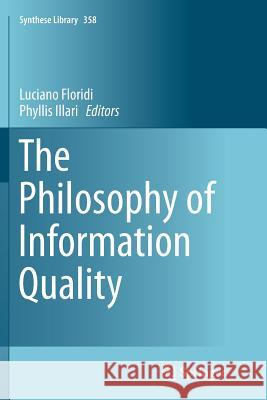The Philosophy of Information Quality » książka
topmenu
The Philosophy of Information Quality
ISBN-13: 9783319378244 / Angielski / Miękka / 2016 / 315 str.
Kategorie:
Kategorie BISAC:
Wydawca:
Springer
Seria wydawnicza:
Język:
Angielski
ISBN-13:
9783319378244
Rok wydania:
2016
Wydanie:
Softcover Repri
Numer serii:
000037621
Ilość stron:
315
Waga:
0.50 kg
Wymiary:
23.5 x 15.5
Oprawa:
Miękka
Wolumenów:
01











